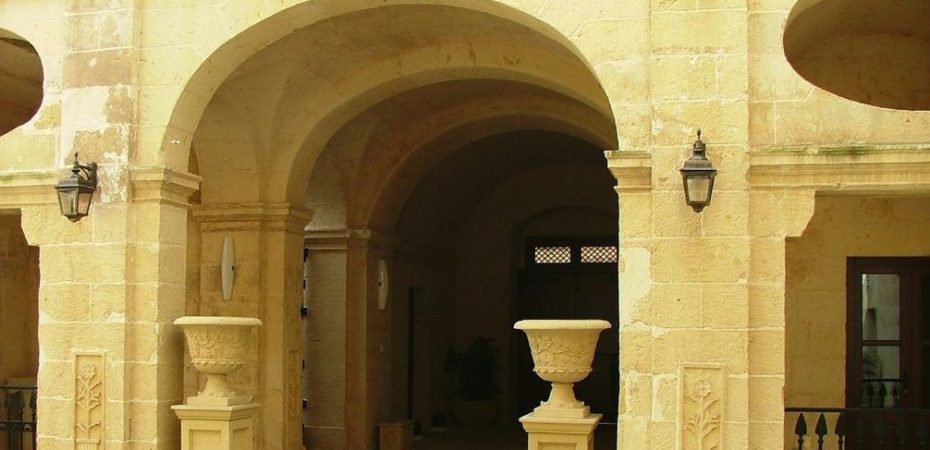Please follow this link to search for Luxury Property For Sale in Malta from the Prestige Property Group.
Once you have chosen your property, our guide will help you negotiate the Maltese property buying process.
1. Signing the Agreement (Konveju)
When you find a property you wish to purchase you may want to negotiate the price, you can either negotiate with the seller directly or if you are going through an estate agent you can negotiate through them.
Once the price has been agree with the seller, your next step will be to sign a Preliminary Agreement, this is known as a Konveju. The agreement is binding for both you (the purchaser) and the seller of the property, it will specify the date when the purchase must be completed.
2. Paying the Deposit
A 1% provisional stamp duty payment will be required at this point, (this is a part payment and the balance to make up the full payment of 5% will be required when the final deed is signed). You will also pay an agreed deposit, which is generally around 10% of the total purchase price of the property.
3. On Completion
In the following few weeks the research to verify the legal title will be carried out by your notary, they will also check that there are no outstanding debts on the property, hypothecs (the right of a creditor to take a borrower’s property if a debt or obligation isn’t repaid), or liens. During this time you will need to make sure that you have the finances in place for the purchase and that you have any required permits, forms etc. that are required, (these will have been included in the Konveju). The seller will fulfil any requirements for their side of the deal.
Once all parties have fulfilled their obligations the date will be set for the signing of the Final Deed. Generally this is done at the offices of your notary or your banks legal offices. When the Final Deed is signed the balance of the purchase price will be paid to the seller. The balances which must be paid for stamp duty (to the Commission of the Inland Revenue) and the notary fees (to the Notary Public), will also be paid at this point.
The property will now be officially yours and you will be handed the keys to you new home.
Legislation specifies that within 15 days of the date of the deed of transfer, your notary must apply for the property to be registered with the Land Registry (if the property is in a registration area). This will be applicable for both first-time registrations and if the property has been registered previously. For this your Notary will be required to present proof of ownership to the Land Registry (this will include the legal documents for your claim, such as a deed, original registration plan and a detailed plan).
Malta Properties Taxation & Costs
On Malta There Are No Property Taxes Levied
Income Tax
All income earned by non-residents in Malta will be liable for tax and married couples will be taxed jointly.
There is a withholding tax of 25%, which non–residents are subject to, usually this will be the final tax. The exception to this will be property income (e.g.rental income), this will be credited to their tax liability on filing their tax returns. The following progressive rates apply:
Income Tax for Non-Residents
Progressive Rates:
Up to €700 No Tax
€700 – €3,100 20% on the band over €700
€3,100 – €7,800 30% on the band over €3,100
Over €7,800 35% on all income over €7,800
Rental Income
Progressive rates are incurred for rental income. The tax is calculated by the gross rent minus the following:
• Ground rental and any rental which the owners must pay on the property
• Any License fees which are levied in accordance with the Tourism Act and the Malta Travel Act.
• Housing loans interest expenses
• An allowance will be made of 20% for the gross income which remains after the license fees and rent have been deducted. 20%, the standard allowance, covers repairs, costs and other related expenses.
Capital Gains
Non-residents are obliged to sell their Maltese property to a Maltese citizen. If they cannot either find a Maltese buyer or a citizen of the EU, only then is it permitted for them to make the transfer to a foreign national.
Capital gains in Malta is a cost on the transaction rather than a tax on the gain on the capital. It is generally 12% of the selling price or the transfer value. The only fees that can be deducted from the selling price are the brokerage fees. The notary public must be paid, provisionally, a tax of 12% of the selling price, this the notary will pass on to the Inland Revenue as a tax liability payment.
Please follow this link to search for Luxury Property For Sale in Malta from the Prestige Property Group.
IMPORTANT – Disclaimer :
All information provided is believed to be current and provided free of charge. No liability can be accepted for the reliability of the information and statements made as this is obtained from 3rd parties. We always recommend you take legal advice from a fully qualified Lawyer or Notary before buying a property overseas.
